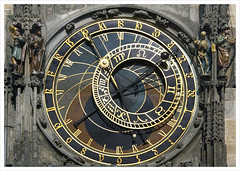 It begins, “George Washington Crosby began to hallucinate eight days before he died.” From there, we enter a beautiful, chaotic world that spans generations. Paul Harding creates a web of characters that compliment one another while illuminating life’s most profound experience: death. Tinkers follows the quick decline of George Crosby, an elderly man dying of kidney failure and cancer. By hopping from one thought to the next, meandering through a series of flashbacks and recalling stories from a range of perspectives, Harding somehow pieces together a well-rounded narrative.
It begins, “George Washington Crosby began to hallucinate eight days before he died.” From there, we enter a beautiful, chaotic world that spans generations. Paul Harding creates a web of characters that compliment one another while illuminating life’s most profound experience: death. Tinkers follows the quick decline of George Crosby, an elderly man dying of kidney failure and cancer. By hopping from one thought to the next, meandering through a series of flashbacks and recalling stories from a range of perspectives, Harding somehow pieces together a well-rounded narrative.
One aspect I found fascinating in Tinkers was the way it played with memory both directly and indirectly. For example, George Crosby, the main character, “remembered many things as he died, but in an order he could not control. To look at his life, to take the stock he always imagined a man would at his end, was to witness a shifting mass, the tiles of a mosaic spinning, swirling, reportraying, always in recognizable swaths of colors… but also independent now of his will, showing him a different self every time he tried to make an assessment” (18). Here, we find Harding using gorgeous imagery to describe the confusing end to this man’s life while simultaneously questioning the self-assurance we are supposed to feel as we near death. Instead of leaving the world with a one-dimensional idea of his identity, his sense of self becomes increasingly complicated and, arguably, more aware.
“Paul Harding creates a web of characters that compliment one another while illuminating life’s most profound experience: death.”
At SevenPonds, we tend to recommend keeping a record of your life story or your loved one’s story as a way of keeping those memories alive. Paul Harding both recognizes that need and (unsurprisingly) complicates it at the same time. Realizing he was approaching the final months of his life, George decides to dictate memories from his life into a tape recorder. Starting with the basic facts and moving towards more emotionally charged memories, after an hour and a half he finds himself “openly weeping and lamenting the loss of this world of light and hope” (23). This cathartic exercise leaves him so deeply moved that he decides to play back the tape, hoping “he might preserve such a mood of pure, clean sorrow.” Instead, he hears his voice as
nasally pinched and listens to the tape for six seconds before throwing it into the fire. Personally, I wouldn’t advise tossing your memoir into flames, but this action symbolizes the inherent conflict in attempting to make an inventory of one’s life experience.
Despite all the exquisite moments in this novel I could mull over for hours, the impending death of the main character and the developing relationships between the minor characters kept me reading from front to back without putting it down. For a book decidedly about death, it also brought to life the quieter aspects we often overlook—the feel of snow, the sound of clockwork, the scent of citrus. To take one aspect and say the book is just one thing would understate the point, much like trying to define a person as they near the end of a full life.
Related Articles:
- Pulitzer Prize Winner for fiction announced (kimbofo.typepad.com)
- Paul Harding’s Pulitzer Moment (http://www.nytimes.com/2010/04/19/books/19harding.html?pagewanted=all)

 Tinkers, by Paul Harding
Tinkers, by Paul Harding



 Our Monthly Tip: Make an “In Case of Death” File to Ease Loved One’s Grief
Our Monthly Tip: Make an “In Case of Death” File to Ease Loved One’s Grief
 Passing of Beloved Comedian Births a New Comedy Festival
Passing of Beloved Comedian Births a New Comedy Festival















